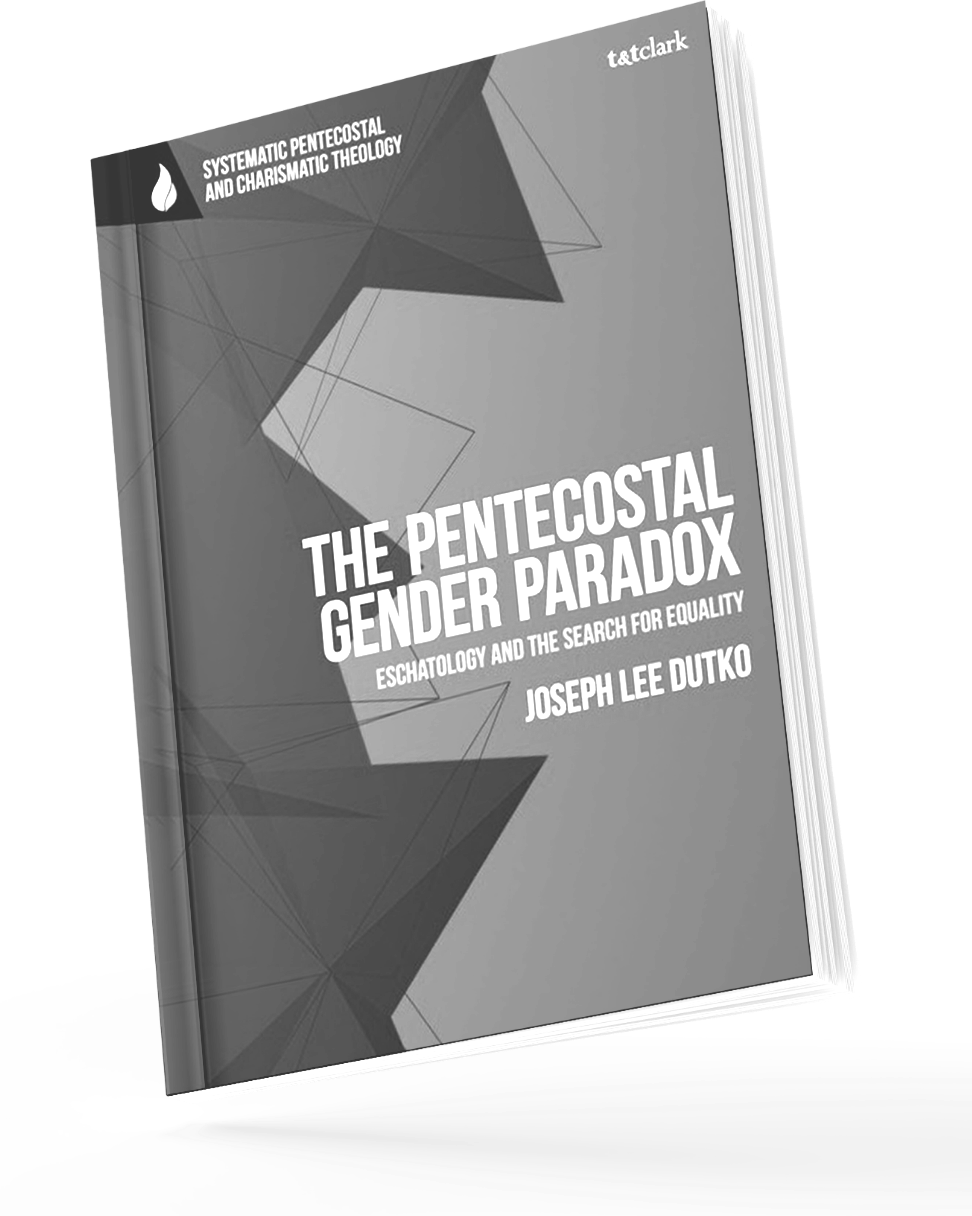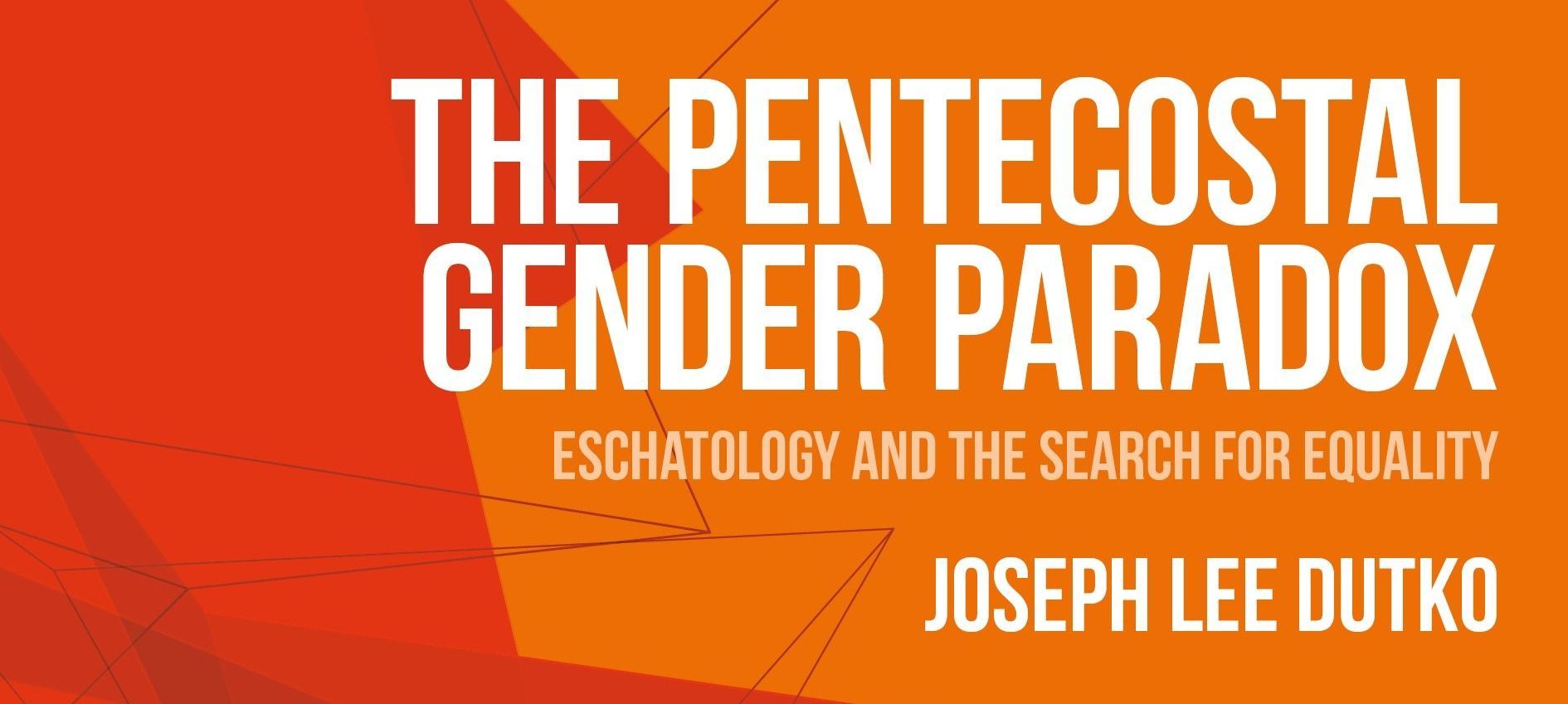Excerpt from Ch. 4: "Imagining the Eschaton"
An Excerpt from Chapter 4
Over the next few weeks I'll be releasing short excerpts from each chapter of The Pentecostal Gender Paradox to give you a feel for the work.
Remember you can read the entire Introduction here.
Want to purchase? Info and discounts HERE.
Excerpt from Chapter 4:
"Imagining the Eschaton:
(Re)Constructing the Eschatological Authorizing Hermeneutic"
Note: footnotes not included in excerpt
Pages 147-48:
From the section on Genesis 1-2, particularly regarding its hermeneutical priority:
The hermeneutical priority of Genesis 1–2 is clear in its context. The original—and eventually redeemed—order of creation in the first two chapters of Genesis holds priority over the fallen order of Genesis 3. Therefore, Scriptures that are in the service of restoring the creation trajectory should be prioritized over ones that uphold the fallen order . . .
Jesus provides an example of reading from the vantage point of eschatological texts on gender, particularly Genesis 1–2, for solving gender questions. In his teaching about divorce in Matthew 19:1-12, Jesus sought to break the power men used over women in divorce practices, which demeaned and disadvantaged women in the first century. The Pharisees quote Scripture and assume its authority to defend the patriarchal practice of divorce (v. 7). However, Jesus uses the hermeneutical strategy that some texts offer a clearer picture of God’s intentions than others. He uses the eschatological passage of Genesis 1:27 to argue that “from the beginning it was not so” (vv. 4, 8). Jesus claims that more culturally specific commands were temporary concessions that had more to do with the hardness of (specifically men’s) hearts than with God’s ultimate vision for male-female relations (v. 8). Jesus’ respect for the equality of male and female (Gen. 1:27) and the protection of women supersedes other quotations from Scripture used to legitimate oppression and social practices that support male domination. Despite a scriptural “command” (v. 7) that justified postlapsarian concessions to human fallenness, Jesus’ ethics of male-female relationship is not predicated on such concessions, even if canonized. Rather, Jesus’ understanding of gender and prescribed practices was based on a prelapsarian eschatological understanding. Jesus encourages practices in the present world that are in line with the eschatological plan laid out “at the beginning” (v. 4).
Page 162:
From the section on Galatians 3:28, particularly regarding the "in Christ" and the influence of Jesus' actions toward women:
As eschatological prophet par excellence, Jesus’ actions on gender matter, and it is his ministry and its eschatological trajectory that allowed Paul to imagine that “in Christ” there is no distinction between male and female in authority, status, or privilege. Jesus never said “do this” in relation to women or gender dynamics. However, it would be hard to explain the sudden boldness of the New Testament writers on the role of women, including Paul’s egalitarian vision in Galatians 3:28, outside of Jesus’ behavior. It would be nearly impossible for the gospel writers or early Christians to understand fully the equal status of women Jesus was pointing to with his actions. As inaugurator of the new creation, Jesus set the eschatological trajectory of imagining a world of equality. He took measured, realistic steps against the gender expectations of his culture, leaving room for “much more” eschatological imagining of the full inbreaking of his kingdom (John 16:12-15). Therefore, as we read the Gospels with an eschatological imagination, we are invited into participatory action that is analogous but not necessarily identical to Jesus. The goal is not to replicate the practices of Jesus or the New Testament, but to imagine further their ultimate trajectory and put them into practice in a way that transforms human relationships to reflect God’s eschatological plans and purposes.
NEWSLETTER SIGNUP (blog post layout)
ABOUT JOSEPH
Pastor, Author, and sometimes pretends to be a Scholar
Joseph (PhD, University of Birmingham) is the author of The Pentecostal Gender Paradox: Eschatology and the Search for Equality.
Since 2015, he and his wife have together pastored Oceanside Community Church on Vancouver Island, where they live with their four children.










